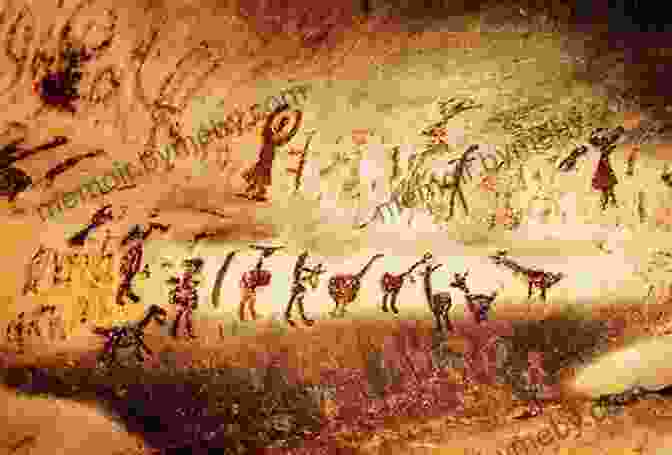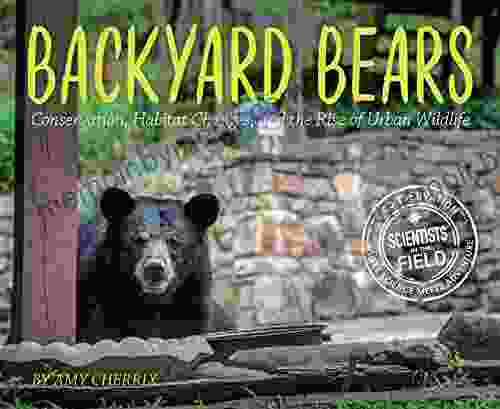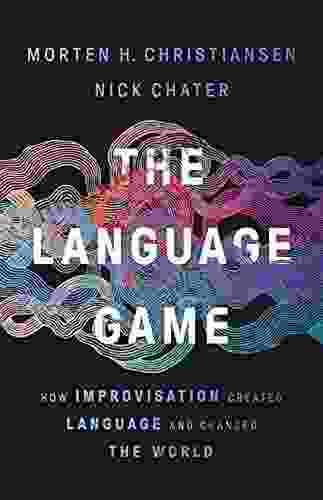How Improvisation Created Language and Changed the World: A Captivating Exploration

4.5 out of 5
| Language | : | English |
| File size | : | 9165 KB |
| Text-to-Speech | : | Enabled |
| Screen Reader | : | Supported |
| Enhanced typesetting | : | Enabled |
| Word Wise | : | Enabled |
| Print length | : | 305 pages |
The Improvisational Origins of Language
Language, the cornerstone of human communication, is not a static entity but an ever-evolving masterpiece. Its origins lie in the realm of improvisation, where our ancestors stumbled upon ingenious ways to convey their thoughts and experiences.
Just as jazz musicians weave melodies and rhythms spontaneously, early humans uttered sounds and gestures to express basic needs and emotions. Through a process of imitation, variation, and selection, these improvisational utterances gradually coalesced into recognizable words and phrases.

The Power of Improvisation
Improvisation, far from being a random process, is a powerful tool that fuels creativity and adaptability. In the case of language, improvisation allowed our ancestors to:
- Express complex ideas: By combining and modifying existing sounds and gestures, early humans could convey nuanced messages.
- Adapt to changing environments: As their surroundings evolved, so too did their language to reflect new experiences and challenges.
- Foster cooperation: A shared language enabled individuals to work together effectively, coordinating actions and sharing knowledge.
Language as a Living, Evolving System
The improvisational nature of language's origins has left an indelible mark on its structure and evolution. Unlike many other communication systems that are rigidly structured, language is inherently fluid and adaptable.
New words and phrases emerge constantly as our vocabulary adapts to changing technologies, social norms, and global interactions. This continuous process of improvisation ensures that language remains a vibrant and expressive tool.

The Impact of Language on Civilization
The invention of language was a pivotal moment in human history, enabling the emergence of civilization as we know it. Language has played a crucial role in:
- Developing knowledge: Language allows us to record and transmit information, enabling the accumulation and dissemination of knowledge.
- Establishing social Free Download: Laws, rituals, and customs are communicated and enforced through language, fostering social cohesion and stability.
- Expressing creativity: Literature, music, and art are all manifestations of our ability to use language to convey emotions, ideas, and experiences.
The Enduring Legacy of Improvisation
Improvisation, the spark that ignited the flame of language, continues to shape the way we communicate today. From everyday conversations to scientific breakthroughs, the improvisational nature of language allows us to adapt and express ourselves in an ever-changing world.
By embracing the improvisational spirit, we can unlock the full potential of language as a tool for communication, creativity, and cultural exchange.
The journey of language, from its humble improvisational origins to its profound impact on human civilization, is a testament to the transformative power of human creativity. Improvisation has not only shaped the structure and evolution of language but has also empowered us to communicate our deepest thoughts and emotions, advance our knowledge, and build a connected global society.
As we continue to explore the vast tapestry of language, let us never forget the improvisational spark that ignited its flame and continues to fuel its ever-evolving nature.
4.5 out of 5
| Language | : | English |
| File size | : | 9165 KB |
| Text-to-Speech | : | Enabled |
| Screen Reader | : | Supported |
| Enhanced typesetting | : | Enabled |
| Word Wise | : | Enabled |
| Print length | : | 305 pages |
Do you want to contribute by writing guest posts on this blog?
Please contact us and send us a resume of previous articles that you have written.
 Book
Book Novel
Novel Page
Page Chapter
Chapter Text
Text Story
Story Genre
Genre Reader
Reader Library
Library Paperback
Paperback E-book
E-book Magazine
Magazine Newspaper
Newspaper Paragraph
Paragraph Sentence
Sentence Bookmark
Bookmark Shelf
Shelf Glossary
Glossary Bibliography
Bibliography Foreword
Foreword Preface
Preface Synopsis
Synopsis Annotation
Annotation Footnote
Footnote Manuscript
Manuscript Scroll
Scroll Codex
Codex Tome
Tome Bestseller
Bestseller Classics
Classics Library card
Library card Narrative
Narrative Biography
Biography Autobiography
Autobiography Memoir
Memoir Reference
Reference Encyclopedia
Encyclopedia Jacqueline Rhoads
Jacqueline Rhoads Andrew Langley
Andrew Langley Bill Lee
Bill Lee Alison Ritchie
Alison Ritchie Alyson Mountjoy
Alyson Mountjoy Alison Noice
Alison Noice Amber Storck
Amber Storck Pedro G Ferreira
Pedro G Ferreira Alexandre Dumas
Alexandre Dumas Erica Wagner
Erica Wagner Ruth Silvestre
Ruth Silvestre Allan V Horwitz
Allan V Horwitz Allan Haley
Allan Haley Allan Ahlberg
Allan Ahlberg Alice Scordato
Alice Scordato Wilkie Collins
Wilkie Collins P James Oliver
P James Oliver Alexander Speltz
Alexander Speltz Amaka Samrah Linus
Amaka Samrah Linus Roy Fullick
Roy Fullick
Light bulbAdvertise smarter! Our strategic ad space ensures maximum exposure. Reserve your spot today!

 Marvin HayesTravels in Egypt, Arabia Petraea, and the Holy Land: An Unforgettable Journey...
Marvin HayesTravels in Egypt, Arabia Petraea, and the Holy Land: An Unforgettable Journey...
 Bruce SnyderEscape into the Gripping World of Marcus Savage Kings Mc South Carolina: A...
Bruce SnyderEscape into the Gripping World of Marcus Savage Kings Mc South Carolina: A... Bernard PowellFollow ·9.9k
Bernard PowellFollow ·9.9k John SteinbeckFollow ·2.8k
John SteinbeckFollow ·2.8k Jean BlairFollow ·15.7k
Jean BlairFollow ·15.7k Gabriel HayesFollow ·10.5k
Gabriel HayesFollow ·10.5k Hudson HayesFollow ·11.7k
Hudson HayesFollow ·11.7k Tom ClancyFollow ·14.8k
Tom ClancyFollow ·14.8k Brett SimmonsFollow ·14.5k
Brett SimmonsFollow ·14.5k Roald DahlFollow ·4.1k
Roald DahlFollow ·4.1k

 Robert Reed
Robert ReedConservation Habitat Changes And The Rise Of Urban...
As urban areas continue to expand, wildlife...

 W. Somerset Maugham
W. Somerset MaughamRide the Waves: The Ultimate Guide to Surfing Indonesia...
Are you ready to embark on an unforgettable...

 Arthur Conan Doyle
Arthur Conan DoyleThe Widow, the Priest, and the Octopus Hunter: A Literary...
Prologue: A Tapestry...

 Fernando Bell
Fernando BellRide the Waves of Adventure: The Ultimate Guide to...
Unveiling the Surfing Paradise of Peru For...
4.5 out of 5
| Language | : | English |
| File size | : | 9165 KB |
| Text-to-Speech | : | Enabled |
| Screen Reader | : | Supported |
| Enhanced typesetting | : | Enabled |
| Word Wise | : | Enabled |
| Print length | : | 305 pages |












